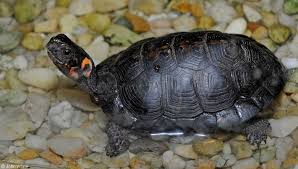Araceli Quino
There are about 16,306 endangered and threatened species in the world. 1,300 in the United States, and as of July 2016, 69 species in Virginia were in danger of going extinct or close. Now the numbers have risen, 74 species as of May 2018 are now endangered because of habitat change, destruction of their environment, genetic variation and being targeted for hunting. Changing the bad habits of individuals can help save animals.
1.Stay informed about the endangered species in your area. The Endangered Species Act, signed into law by President Nixon in 1973, which is to prevent extinction, recover imperiled plants and animals, and protect the ecosystems on which they depend on, this has done wonders of helping but not every situation or person is on board. There are hunters and people who are unaware of the low population of certain animals in this world, but still seek for them and sell them off for money in villages or even bid them off. To stay informed and know what’s going on, for example receiving instant alerts and updates on defendersofwildlife.com or any action alerts, and to try to get others involved! Even when it is learning about the most endangered animal in the world, The Amur Leopard , or endangered animals in another country, It’s best to also focus on your own community or even just in your backyard there could be a plant or animal that may interest you in researching.
Just in Virginia the Bog Turtle is top of the list for endangered amphibians and reptiles in Virginia. They are a very small (3-4 inches), black, semi-aquatic turtle species, easily identifiable by the orange-red spot on either side of their heads. Bog turtles prefer to live in boggy marshlands surrounded by woodlands. Its extremely sensitive habitat is easy to destroy and the species is very sensitive to pollution as well.
2.Follow the three R’s. Reduce, Reuse, and Recycle. Do not buy furniture made of wood from rainforests or endangered trees. Recycle your cell phones, because a mineral used in electronic production is mined from areas that are gorilla habitats. Reduce the amount of water you use, take shorter showers, when brushing your teeth, don’t leave the water on for the entire time. Never dump chemicals or pharmaceuticals down toilets, storm drains or into streams/lakes. Drive less, walk more, or ride a bike to your next location.
3. Volunteer time to protect wildlife in area. Visit a local wildlife center or volunteer by educating visitors and yourself. Even doing activities or going on trips to visit animal habitats and helping to clean their homes by picking up trash, adding new editions or aiding them can be beneficial.
4.Pick up trash and stop littering because this garbage often ends up in the water that animals live in and drink from. Polluting the rivers with chemicals, plastic bags or pieces of harmful material can get caught around their necks which causes harm. According to National Geographic, the amount of global trash is expected to rise every year for the rest of the century. Simple everyday items like soda cans, straws, even spitting your gum out–which birds could step on and get stuck to their feet causing them to not being able to move–or even using straws cause harm. When these end up in the ocean, they don’t break down and are often ingested by fish and other small marine-life killing them. There are simple solutions to these problems, such as using a reusable straw and reducing your single-use plastic consumption.
5.Plant more trees and grow native plants. By doing this, it provides wildlife with a shelter and food to stock up on. Native plants also easily adapt to the local conditions and save water. They do not require pesticides, fertilizers, or water.
By doing these five small steps, you can help decrease the number of endangered species, As of July 2016, Virginia had about 50 endangered species and 19 threatened species which was listed under the federal Endangered Species Act (ESA). If starting or to continue doing these helpful ways, the numbers can lower and have less endangered or threatened species.



